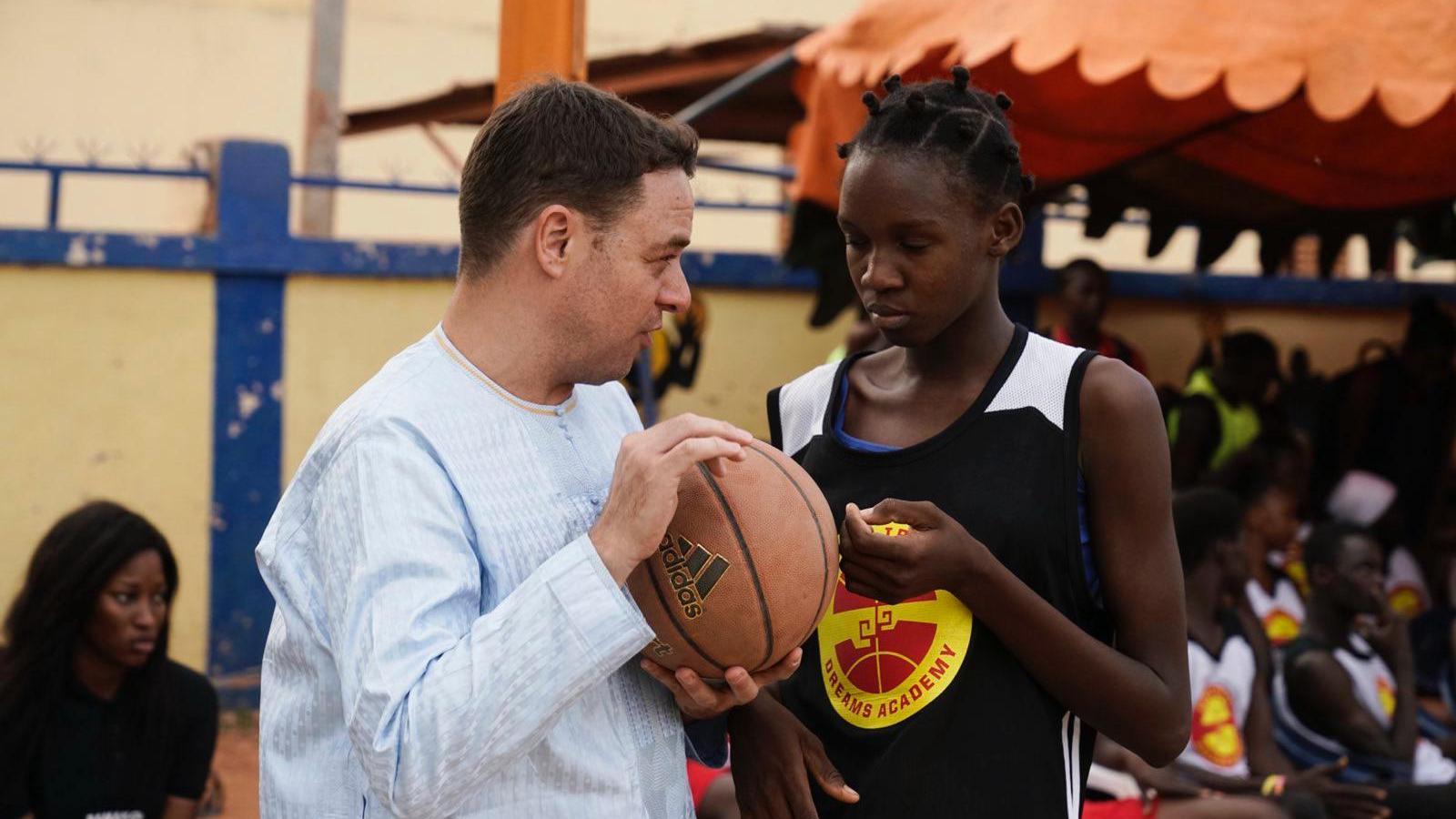"You can see the suffering of decades in people's faces."
ARA spoke with Pere Gallego, a former Barça employee with ties to the Democratic Republic of Congo, about the club's sponsorship in that country.


BarcelonaThe relationship between Barça and the Democratic Republic of Congo has a unique nature. Unlike the usual sponsorship contracts between a country or region and a football club, this one doesn't have among its objectives, according to the statement from the Barcelona club, promote tourism. The explanation is quite simple. "The tourism industry is nonexistent in Congo because the most interesting area is in the east, the Kivu region, and it has been at war for 30 years [it is now occupied by the M23, a Tutsi-majority rebel military group supported by neighboring Rwanda]. War crimes are committed and women are raped due to the professional way of working of both Barça and Congo. Gallego worked for the Blaugrana club for almost a decade.
In fact, the Spanish government recommends avoiding any trip to Congo. "It is an unvisitable country. It has five times the territory of Spain and only 1,000 kilometers of paved roads," continues Gallego, who led the design and implementation of the department of scouting and recruiting for the Barcelona basketball team, and is now an NBA agent with You First by Gesh after bringing players like Serge Ibaka, a Congolese man with a Spanish passport, from Africa to Europe. "Being Congolese is heroic. You can see the suffering of decades in people's faces," says Gallego, who has visited the Central African country dozens of times to develop various sports projects.
Precisely, developing sports projects in the Congo is the key to sponsorship with Barça, which will carry the motto DR Congo - Heart of Africa (Congo, heart of Africa) on the backs of all professional teams' training and warm-up jerseys. "FC Barcelona and the Government of the Democratic Republic of the Congo (DRC) "They announce a four-year strategic agreement with the aim of promoting football and the culture of sport and peace. This agreement represents a shared commitment to fostering multi-sport development in the country and, as part of this collaboration, the club will contribute to enriching the training of young athletes in the country by transmitting its ecosystem of values, an indisputable pillar of the Barça model and style," Barça reported when it made the agreement official with the Ministry of Sports.
"I hope the project goes well, because there is a lot of talent in the Congo, and that these boys and girls can have a better future," Gallego hopes. However, he warns that, currently, the sporting situation in the country is precarious. Until recently, there wasn't a single basketball arena in a country of 100 million inhabitants. The sports infrastructure is nonexistent. National teams in any sport often cannot travel due to lack of money or have trouble paying for hotels and food while traveling." The fact that the Congolese government, faced with this situation, has closed a sponsorship deal with Barça worth over 40 million euros over four seasons (in addition to the deals it has signed with Milan and Monaco) is one of the complaints among the opposition.
The high level of corruption in Congo
"But beyond the precariousness of sports, the country's main problem is that many people don't even have food security [the World Bank reports that 73% of the Congolese population lives below the poverty line]. The situation in Congo is dramatic." Gallego also emphasizes the extremely high level of corruption. "Politicians are corrupt while people are starving. In Congo, almost everyone is looking for a way to steal." Transparency International places the Central African country 163rd out of 180 in its corruption ranking.
